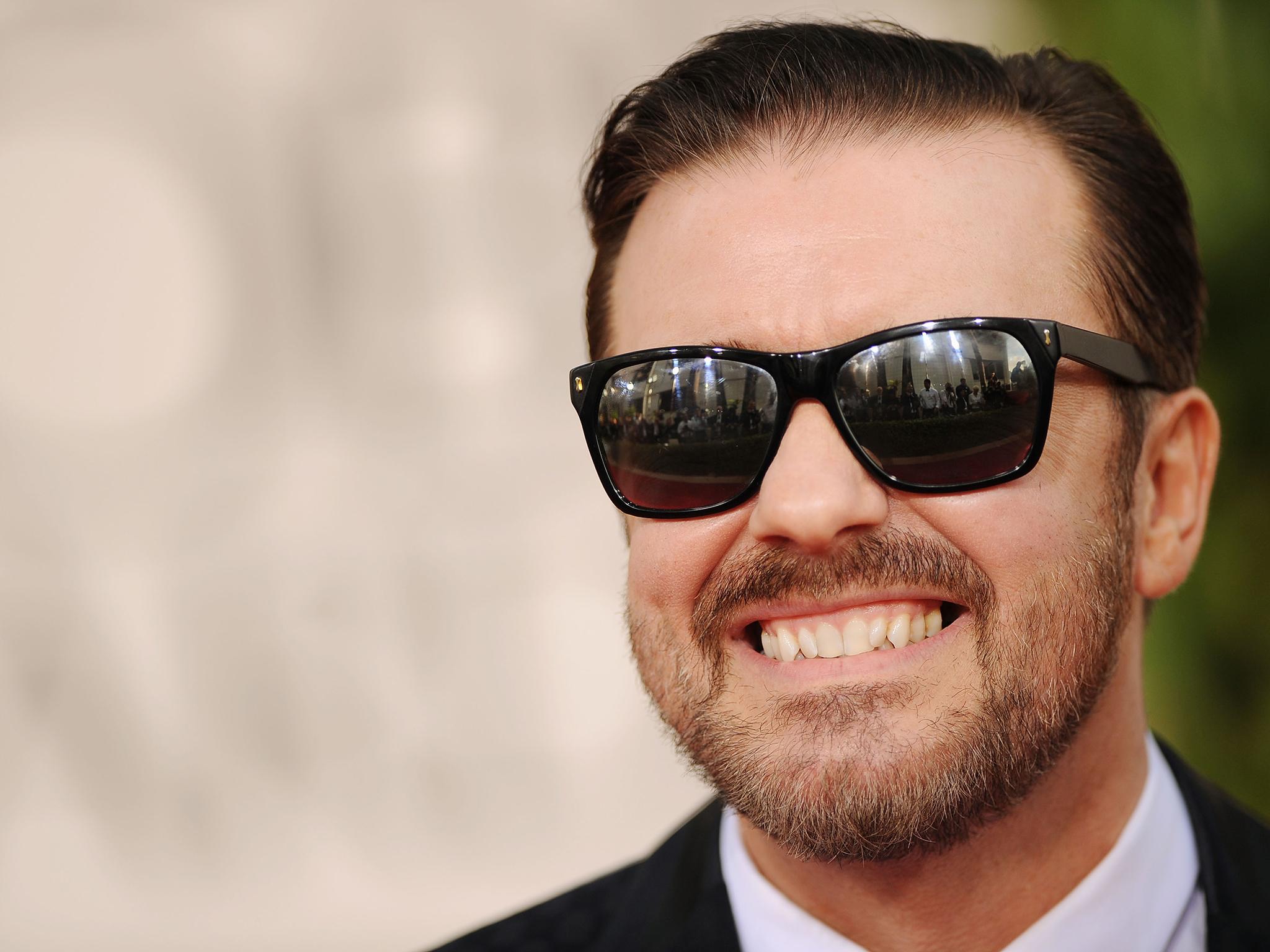Ricky Gervais made growing up with achondroplasia an extra burden – and now he wants to be a mental health campaigner
Gervais has been battling mixed reviews and Twitter trolls of late, following the release of his film Life on the Road, but is apparently unbothered by this attention because 'no teenager living in his parents’ basement can affect the life of a person floating on a lilo in his own pool'

For people of difference like me, there’s a greater dimension to the Ricky Gervais debate than simply whether his latest project is up to scratch or not. For me, he’s been a haunting, divisive and deeply damaging figure in a career spanning “mong faces”, dubious sketches and dodgy series. And while thick skin and acceptance of some forms of comedy comes with the game, it’s his gradual transcendence into “principled campaigner” that reeks of hypocrisy.
In particular, my condition – achondroplasia – has been a career-long obsession for Gervais. In vulnerable teenage years, there is a lot to deal with. But Gervais’ unwavering commitment to projecting this fascination onto screens and radio followed me with inescapable drive. I recall his old X-fm show with a particularly relentless use of “midget” echoing around the car that made me recall dark childhood scenes; only this was carried out by celebrated, middle-aged and affluent, famous men rather than children who might not have known any better.
In 2006, as I was watching the World Cup, he came onto the screen at half-time to act out a sketch with six-foot-seven Stephen Merchant and three-foot-five Warwick Davies as a “comical” forward-line. Gary Lineker’s muted, awkward reaction was the only saving grace to unexpected, difficult viewing in the middle of a football game. There are dozens more examples lingering in the mind – and, of course, it all culminated in an entire series (Life’s Too Short) dedicated to the subject.
When people with differences are picked out and continuously targeted, it is both testing and scarring for the communities involved. So it was questionable to see Ricky Gervais recently posing proudly in support of a new men’s mental health campaign. This excellent, worthy campaign encourages men to be more open about their emotions and mental health. But for many who have endured his lifelong obsession with difference, his ‘OK’ gesture is not just misplaced, but an insult.
When he treated the world to his “mong face” on Twitter he dealt with distressed parents across Britain, worried about the knock-on effects a household name furthering the work of the playground bully would have on their children. That was a mental health issue. When he showcased his dubious protagonist from Derek, communities were deeply alarmed at how their brothers, sisters and friends with similar symptoms and behaviour would be treated in public. That’s a mental health issue. When his constant references to “midgets” on TV and radio made me feel taunted and singled out, that was a mental health issue.
In Gervais, we have sought to elevate an entertainer into “spokesperson for Planet Earth”. In 2013 he won PETA campaigner of the year, despite describing how he’d made himself sick after gorging on “11 sausages” to the Telegraph. Ambassador for animal welfare indeed. It sets a dangerous precedent if we become so willing to accept celebrity endorsement of our values that we forget to question whether that person actually shares our values in the first place.
Gervais has been battling mixed reviews and Twitter trolls of late, following the release of his film Life on the Road, but is apparently unbothered by this attention because “no teenager living in his parents’ basement can affect the life of a person floating on a lilo in his own pool”. Yes, Gervais, you may be rich, but there are some things the lowly average earner could teach you about life, lilo or no. One of them is about listening to the voices you’ve profited from for so long. People like me have watched you build your career off the backs of our conditions, mostly in a cruel and thoughtless manner – so don’t expect a receptive response when you tell us how concerned you are for our mental health.
Join our commenting forum
Join thought-provoking conversations, follow other Independent readers and see their replies
Comments
Bookmark popover
Removed from bookmarks